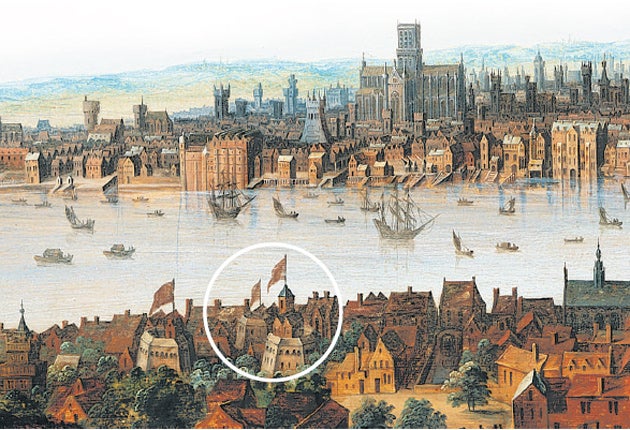Fancy oysters with your Shakespeare?
Archaeologists discover that theatregoers liked to snack on seafood during performances in Tudor times

Your support helps us to tell the story
From reproductive rights to climate change to Big Tech, The Independent is on the ground when the story is developing. Whether it's investigating the financials of Elon Musk's pro-Trump PAC or producing our latest documentary, 'The A Word', which shines a light on the American women fighting for reproductive rights, we know how important it is to parse out the facts from the messaging.
At such a critical moment in US history, we need reporters on the ground. Your donation allows us to keep sending journalists to speak to both sides of the story.
The Independent is trusted by Americans across the entire political spectrum. And unlike many other quality news outlets, we choose not to lock Americans out of our reporting and analysis with paywalls. We believe quality journalism should be available to everyone, paid for by those who can afford it.
Your support makes all the difference.Today's theatre audiences tend to sustain themselves by craftily tucking into goodies during the performance or quaffing pre-ordered drinks at the bar during the interval.
But archaeologists have found that the British habit of snacking while watching the latest play began hundreds of years ago – although back then the fare was somewhat different.
The preferred snacks for Tudor theatre-goers appear to have been oysters, crabs, cockles, mussels, periwinkles and whelks, as well as walnuts, hazelnuts, raisins, plums, cherries, dried figs and peaches.
Some clues even suggest that 16th-century fans of William Shakespeare and Christopher Marlowe also ploughed through vast quantities of elderberry and blackberry pie – and some may even have snacked on sturgeon steaks.
The evidence has emerged from the most detailed study ever carried out on a Tudor or early Stuart playhouse. Archaeologists have been analysing the thousands of seeds, pips, stones, nutshell fragments, shellfish remains and fish and animal bones found on the site of the Rose Playhouse on London's South Bank.
Museum of London Archaeology has just published the findings in The Rose and The Globe: Playhouses of Shakespeare's Bankside, written by archaeologists Julian Bowsher and Pat Miller.
Their research also suggests that there was a class divide in the consumption of fast food. The discoveries show that wealthier members of the audience (seated in the galleries, rather than standing in the yard) could afford imported foods such as raisins, dried figs and peaches.
The research also revealed that some theatre-goers may have indulged in pipe-smoking. Tobacco, originally from the New World, had only been introduced to England a few years earlier, but was already being cultivated along the banks of the Thames. The archaeologists also identified seeds from marrows or pumpkins, which came from the Americas.
Thousands of hazelnut shells were used as absorbent floor aggregate on which poorer spectators could stand.
The Rose was built in 1587 by the impresario and brothel owner Philip Henslowe and a grocer called John Cholmley. An outbreak of bubonic plague kept it shut between June 1592 and May 1594, and it finally closed in 1605, when the lease ran out.
The second half of the 1590s was the playhouse's heyday. It hosted a company called the Admiral's Men and specialised in works by Christopher Marlowe, such as Dr Faustus, The Jew of Malta and Tamburlaine. Other plays performed there almost certainly included Thomas Kyd's Spanish Tragedy and now-lost anonymous works like The Ranger's Comedy, Cutback and, most popular of all, The Wise Man of Westchester.
London playhouses were very popular with the youth of the capital (especially young apprentices) but were frowned upon by many.
Join our commenting forum
Join thought-provoking conversations, follow other Independent readers and see their replies
Comments